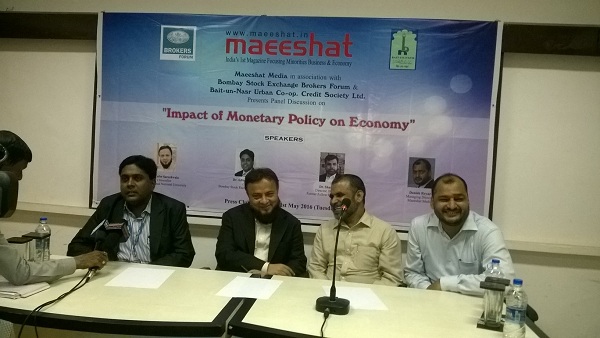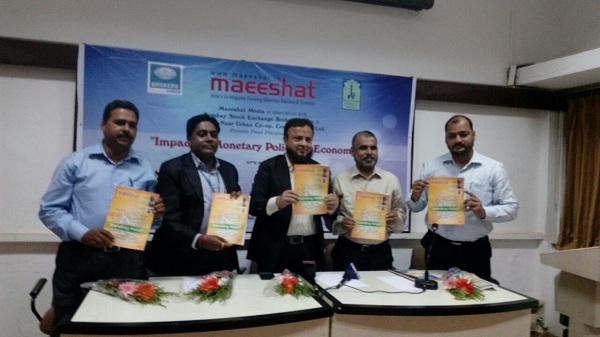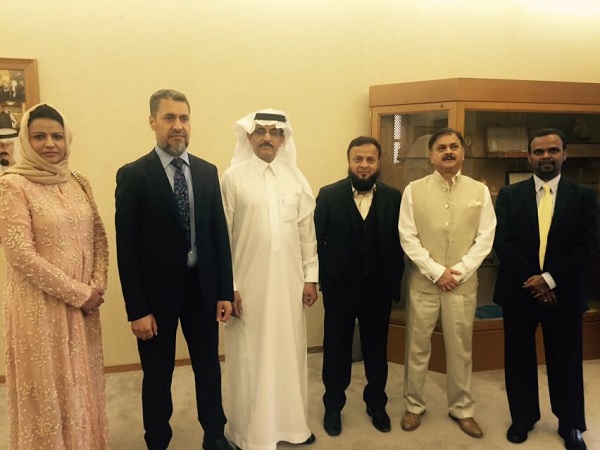
by admin | May 25, 2021 | Events, Social Round-up
 Hyderabad: Indian film superstar Shah Rukh Khan on Monday received an honorary doctorate from Maulana Azad National Urdu University (MANUU) here for his extraordinary contribution in promotion of the Urdu language and culture through his films.
Hyderabad: Indian film superstar Shah Rukh Khan on Monday received an honorary doctorate from Maulana Azad National Urdu University (MANUU) here for his extraordinary contribution in promotion of the Urdu language and culture through his films.
MANUU Chancellor Zafar Sareshwala conferred him with the degree at the sixth convocation of the varsity.
Clad in a graduation gown and sporting sunglasses, Shah Rukh received the honorary doctorate amid a thunderous applause by the students.
In his brief acceptance remarks, Shah Rukh thanked the university for the honour. He said his parents would have been happy to see the moment, especially since he was receiving the honour in the birthplace of his mother.
The actor said his father was a follower of Maulana Abul Kalam Azad.
“I heard my father also contested an election as an independent candidate and forfeited his deposit,” he said.
Shah Rukh told the gathering that his father spoke beautiful Urdu and Persian. “Whatever little knowledge I have about how to speak, it is because of him,” he said.
“I think it is a very big responsibility in the field of education and in the field of Urdu and languages. Through my work, whatever little I can do, I promise, I will make sure that I take it to the best of my capabilities,” he added
Telangana and Andhra Pradesh Governor ESL Narasimhan was the guest of honour while the event was presided over by Chancellor Zafar Younus Sareshwala.

by admin | May 25, 2021 | Business Summit, Economy, Events, News

From left Dr. Aditya Srinivas, Zafar Sareshwala , Dr Shariq Nisar, Danish Reyaz
By Saif Alam Siddiqui, Mumbai: Maeeshat Media Pvt Ltd entitled to be India’s first magazine focusing minorities economy, in association with Bombay Stock Exchange Brokers forum and Bait Un Nasr urban Co.Op Credit Society Ltd Mumbai Organized a Panel Discussion on the Role of Monetary Policy on Economy at Mumbai Press Club on May 31, 2016. Experts from various backgrounds shared their thoughts the discussion was facilitated by Danish Reyaz Managing Director of Maeeshat Media, he expressed his ideas behind conducting this program.
The discussion was initiated by Dr Shariq Nisar, former Senior Visiting Fellow at Harvard University has crystal clear the audience about the fiscal and monetary economic policy which impact economy, he also emphasized on the social and distributional aspects of monetary policy. As being the economist he accepted the credibility of current RBI governor Raghuram Rajan about his expertise in balancing the economy in crisis.

From left: Salim Qazi Dr. Aditya Srinivas, Zafar Sareshwala , Dr Shariq Nisar, Danish Reyaz
Dr. Aditya Srinivas COO, Bombay Stock Exchange Brokers Forum also the chief Economist of BSE Brokers Forum spoke about the technical aspects of GDP, growth, inflation, interest rate on economy and linked up its impact on a common man and presented a clear cut anatomy of Money flow.
Zafar Sareshwala Chancellor Maulana Azad National Urdu University, Hyderabad shared his initiative taken with regards to skill development of students at Maulana Azad university and giving industrial exposures to students, he also share an insights view of economy in the context of infrastructure development and initiative taken by the government to stabilize economy to put in on growth track.
Salim Qazi director of Bait un Nasr also shared his views regarding monetary policy and the role of interest free finance for the development of Indian economy.
All the speakers were crystal clear about the importance of monetary policy for stabilizing economy it needs to continue focusing on the growth and employment but without compromising on the inflation as it really hurts the poor more, and also endorse the important role of monetary policy in an economy.
The program also had a lively question answer session in which participants shared their thoughts and asked questions from the expert panelists.
In the end Maeeshat Director thanks all the speakers and audience for their invaluable support.

by admin | May 25, 2021 | Employment, Media, News
 RIYADH: Indian Prime Minister Narendra Modi’s close aide Zafar Sareshwala, who is also the chancellor of Maulana Azad National Urdu University (MANUU) in Hyderabad, said Indian Muslim community must get itself involved in a political dialogue with the Bharatiya Janata Party (BJP) government to find an amicable solution to its problems.
RIYADH: Indian Prime Minister Narendra Modi’s close aide Zafar Sareshwala, who is also the chancellor of Maulana Azad National Urdu University (MANUU) in Hyderabad, said Indian Muslim community must get itself involved in a political dialogue with the Bharatiya Janata Party (BJP) government to find an amicable solution to its problems.
Addressing a conference on “Educational Empowerment of Indian Muslims — Challenges and Future Road Map” organized here by the Riyadh chapter of the India Islamic Cultural Center (IICC) on Thursday, Sareshwala said: “Over the years, we have been used by various political parties as a vote bank, but they failed to deliver in redressing our grievances.”
He added that these secular parties compounded difficulties for the community by banking on a legal rather than a dialogical approach to settle religious disputes as manifested in the Babri Mosque issue and minority character of the Aligarh Muslim University (AMU).
“Instead of involving in a debate that polarize the political atmosphere, it is fruitful to involve in dialogue with the Modi government and find an amicable solution to our important issues,” said Sareshwala.
He noted that on many issues, “the prime minister is not fully aware of the facts and we need to tell our side of the story through constructive dialogue.”
Referring to the AMU’s minority character, he said that after the IICC meet in Dubai, “I discussed the issue with the prime minister and explained to him the story as to how and why its founder, Sir Syed Ahmad Khan, established the institution and he was convinced that the 19th century reformer set up the institution for Indian Muslims.”
Sareshwala also assured to stand with the great cause of restoring AMU’s minority character.
He said, “There are people involved in negative campaign against me saying, I am a Modi man. Let me tell you the fact that neither I am a member of the BJP nor have interest in the ministry. In fact, it was my petition to the State Department, acting on which, the US refused visa to Narendra Modi for several years. But then I realized that such things can have temporary impact. Hence, I decided to meet him when he was coming to Britain for the Vibrant Gujarat summit and now I am friendly with him and in a position to solve problems related to the Muslim community.”
Speaking on the occasion, Abul Hasan Siddiqui, former pro-vice chancellor of AMU, highlighted the historic aspects of AMU’s minority character, while NRI businessman Rashid Ali Sheikh urged Sareshwala to communicate with the government to ensure inclusive growth by putting aside divisive elements.
Prominent NRI philanthropist Nadeem Tarin said, “There might be ideological differences, yet we can work together on common agenda, which is development for all irrespective of differences based on caste, creed and gender.”
IICC convener Murshid Kamal called for educational empowerment of Indian Muslims. Other keynote speakers and guests included senior journalist Ghazanfar Ali Khan and community leaders Qamruddin Jugnu, Mohammed Quaiser, Akhtarul Islam Siddiqui, Anisur Rahman, Zaki Haider, Mohammad Rahbar, Zakir Aazmi and Syed Muneer.
(reference:http://www.arabnews.com)

by admin | May 25, 2021 | Corporate, Corporate finance, Islamic Banking, News

A historic agreement signed for donation of Medical Mobile Unit by ISLAMIC Development Bank for Rural India with RISE in the presence of HE Khalid Al Aboodi of IDB Honourable Ambassador of India to Saudi Arabia Mr Ahmed Javed and Honourable CG of Jeddah Mr Mubarak at Al Hamra, Jeddah KSA.
By SIRAJ WAHAB
JEDDAH: The Jeddah-based Islamic Development Bank (IDB) has signed a SR200 million agreement with an Indian non-governmental organization (NGO) to provide medical care for poor rural people.
The money is part of a SR1 billion donation which was given by a Saudi benefactor to be utilized for the benefit of poor people across the globe. The benefactor earmarked SR200 million for India, thereby funding 15 mobile health clinics, which the IDB will maintain for the first five years.
The rest of the money is reserved for the deployment of 60 mobile clinics in Pakistan, Bangladesh, Afghanistan, Yemen, Kyrgyzstan and Uzbekistan.

IDB Vice President Sayed Aqa and RISE Chairperson Dimple Kapani sign the agreement at the bank’s headquarters in Jeddah recently. (Courtesy :AN photo)
The benefactor followed the mechanism of the IDB because of the bank’s impeccable record of work in poverty alleviation and health care. The IDB’s funds provide support for countless development projects, emergency response teams, recovery and capacity building. Apart from Palestine, new beneficiaries include Somalia, Niger, Comoros and the minority Rohingya community in Myanmar.
The Mumbai-based NGO, the Rashtriya Institute of Skill and Education (RISE), led by Chairperson Dimple Kapani, is engaged in promoting high-quality medical care for India’s rural poor. It is very active in the Indian state of Rajasthan.

Zafar Sareshwala, Chancellor MANUU with Sidi Saiyed Jali and HE Ahmed Muhammad Ali President of IDB at Crowne Plaza Jeddah.
The aid and assistance from IDB will help RISE buy sophisticated mobile health units that are custom-made for countries such as India. The mobile units are connected to a centralized studio in Mumbai where specialists of top hospitals are present to provide solutions in real time.
Among those present at the signing ceremony was Zafar Sareshwala, chancellor of Maulana Azad National Urdu University (MANUU) and RISE board member.
Welcoming the agreement, he said: “The pact, following so closely on the heels of Prime Minister Narendra Modi’s successful visit to Saudi Arabia, is being seen as one more step in cementing our ties with the Kingdom.”
Sareshwala stated that RISE is also engaged in raising awareness through its flagship outreach program “Taleem Ki Taquat” which focuses on the importance of education for minorities, enabling them to find sustainable employment and improving their standard of living.
“In the six ‘Taleem Ki Taquat’ programs that we have conducted so far all over India, we have been able to bring top federal ministers to our programs. Interaction with them has helped Muslims and other neglected communities solve their problems with practical solutions,” said Sareshwala.
The IDB-funded program will be rolled out initially in rural areas of Maharashtra where RISE already has mobile health units. The agreement with RISE gathered momentum after the recent visit to India by Khaled Al-Aboodi, CEO of the Islamic Corporation for the Development of the Private Sector (ICD). The ICD is IDB’s private sector arm.
Al-Aboodi was also present during the signing ceremony, when the agreement was sealed by IDB Vice President Sayed Aqa and RISE Chairperson Dimple Kapani.
Speaking at the signing ceremony, Aqa said the present agreements with RISE and the previous one with the Export-Import Bank of India (EXIM Bank) are aimed at “establishing bridges with Muslim communities around the world, particularly in India, to promote business ties, educational links and social projects.”
Aqa said: “With India, we have a very good, all-weather relationship. These projects open up many good opportunities for the integration of businesses into the Indian community. We will build on this to further strengthen our relationship. The whole notion is to foster understanding between different communities.”
Kapani thanked the IDB for the funding and said the agreement would boost ties between the two organizations and nations. It will also raise the visibility of the IDB in India because disadvantaged people in rural India will benefit directly from its funds, she added.
Courtesy: arabnews.com

by admin | May 25, 2021 | B-School, Corporate, News

Rajdeep Sardesai speaking at MANUU event in Hyderabad.
Hyderabad: Veteran journalist and former Editor In Chief of The Hindu daily, N. Ram underscored the need to undertake research studies on the deviation of the media from the guidelines enshrined in the constitution.
Speaking as the Chief Guest at the inaugural session of the two-day international conference on Muslims, Media and Democracy—prospects and challenges at Maulana Azad National Urdu University here Tuesday, Mr. Ram said that the few studies that were done in the aftermath of the demolition of Babri Masjid in 1992 and the Gujarat riots in 2002 have indicated the heavily biased role played by a section of the media then. Hindi and Gujarati media agencies did not realize that they have to present an objective picture of the situation. They both took sides that inflicted immense damage to the secular ethos of the country. But no proper study was taken up to find out why that serious deviation of the principled path had taken place.

N. Ram speaking at MANUU event in Hyderabad.
He offered assistance from the Chennai based Asian School of Journalism to MANUU for taking up research on issues of national importance, particularly related to minorities and their language.
Noted TV personality Rajdeep Sardesai said that the TV channels are more worried about increasing their TRP and in the process consolidating negative images of groups of people including the Muslims.
He advised media to strike a balance in reporting and should stay away from targeting or praising one political party or the other.
In his keynote address Shekhar Gupta, former Editor in Chief of Indian Express, said that the movies in Mumbai have played a negative role in projecting the image of Muslims as extremists and perpetuating them. The movie makers and media organizations should not indulge in maligning a community. They should be careful when they are dealing with sensitive subjects such as communalism.

Shekhar Gupta speaking at MANUU event in Hyderabad.
He said that the Muslim in India have followed leaders from other communities to resolve their social, economic and political problems. This positive sign should be highlighted, he suggested.
Four eminent journalists from Pakistan have joined their fellow Indian professionals to discuss issues related to Minorities.
Leading Pakistani journalists Najam Sethi and Imtiaz Alam expressed apprehensions over growing intolerance in India and said that the country should learn lessons from Pakistan in not following the path of secularism and democracy.
Zafar Sareshwala, Chancellor of MANUU, asked Muslims to undertake introspection with a view to finding out why there is so much gap between Islam as a religion and its practice by the followers.
Prof. Mohammed Miyan, Vice Chancellor, said that the Muslims should demonstrate that they have imbibed the spirit of moderation found in their faith.

 Hyderabad: Indian film superstar Shah Rukh Khan on Monday received an honorary doctorate from Maulana Azad National Urdu University (MANUU) here for his extraordinary contribution in promotion of the Urdu language and culture through his films.
Hyderabad: Indian film superstar Shah Rukh Khan on Monday received an honorary doctorate from Maulana Azad National Urdu University (MANUU) here for his extraordinary contribution in promotion of the Urdu language and culture through his films.








